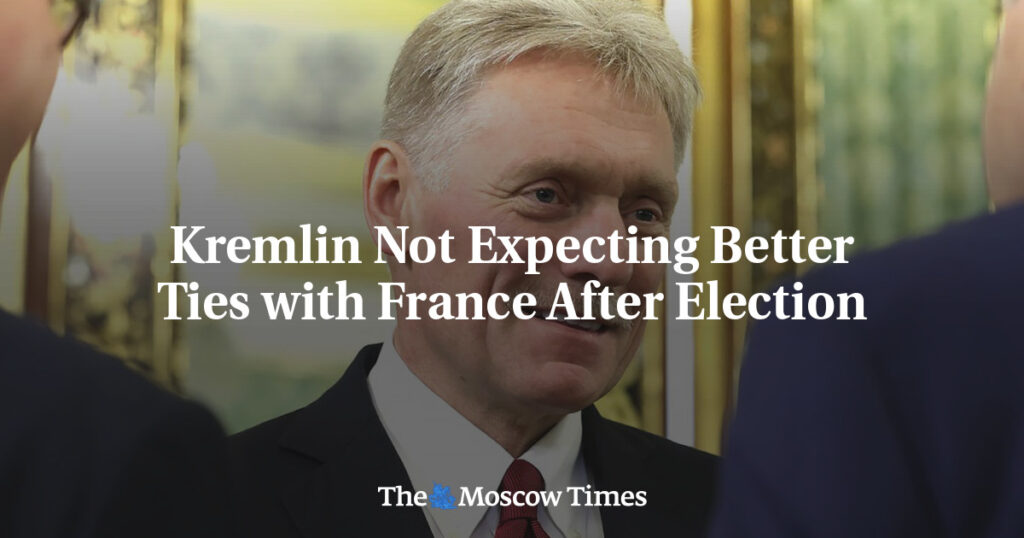Kremlin Skeptical of Improved Relations with France Post-Election
In a recent statement, Kremlin spokesman Dmitry Peskov expressed a lack of optimism regarding the prospect of improved bilateral relations with Paris following France’s snap parliamentary elections. According to Peskov, there has been no apparent political will from any side in France to restore ties with Russia.
The French parliamentary elections have been a topic of significant global interest, particularly due to the surprising outcomes. After leading the first round in June, the far-right National Rally (RN) party, led by Marine Le Pen, was predicted to secure a majority in the French National Assembly. However, the vote that took place on Sunday changed the political landscape dramatically.
The leftist New Popular Front alliance emerged as the party with the most seats, followed by President Emmanuel Macron’s centrist Ensemble coalition. The RN found itself relegated to third place, with no single party achieving an outright majority.
Peskov acknowledged the unpredictability of French voters’ preferences but indicated that Russia would keenly observe the formation of the new French government. This unpredictability has added a layer of complexity to the diplomatic interplay between France and Russia, especially in the backdrop of ongoing geopolitical tensions.
The RN has attempted to align itself with pro-Ukraine sentiments to distance itself from allegations of being sympathetic to Moscow. However, this stance has not entirely dispelled Western perceptions of the party’s ambiguous position towards Russia. Following the RN’s initial success in the election’s first round, Russia’s Foreign Ministry posted a celebratory image of Marine Le Pen on X (formerly Twitter), hinting at a desire for France to pursue a foreign policy that serves its national interests independently from Washington and Brussels’ influence.
Adding to this complex narrative, Russian Foreign Minister Sergey Lavrov criticized the joint efforts of left-wing and centrist parties to thwart a far-right majority in France, describing these efforts as manipulative. Lavrov suggested that if the RN had maintained its initial lead, there would have been "serious changes" in French politics.
These developments come at a time when international relations are highly strained, particularly due to the ongoing conflict in Ukraine and the broader East-West divide. The election results and the subsequent formation of the French government will be critical in shaping not only domestic policies but also France’s foreign relations, including its stance towards Russia.
For official information about the Kremlin, you can visit the Kremlin’s website.
As these political dynamics continue to evolve, stakeholders and observers alike will be watching closely to see how France navigates its complex relationships on the global stage.
